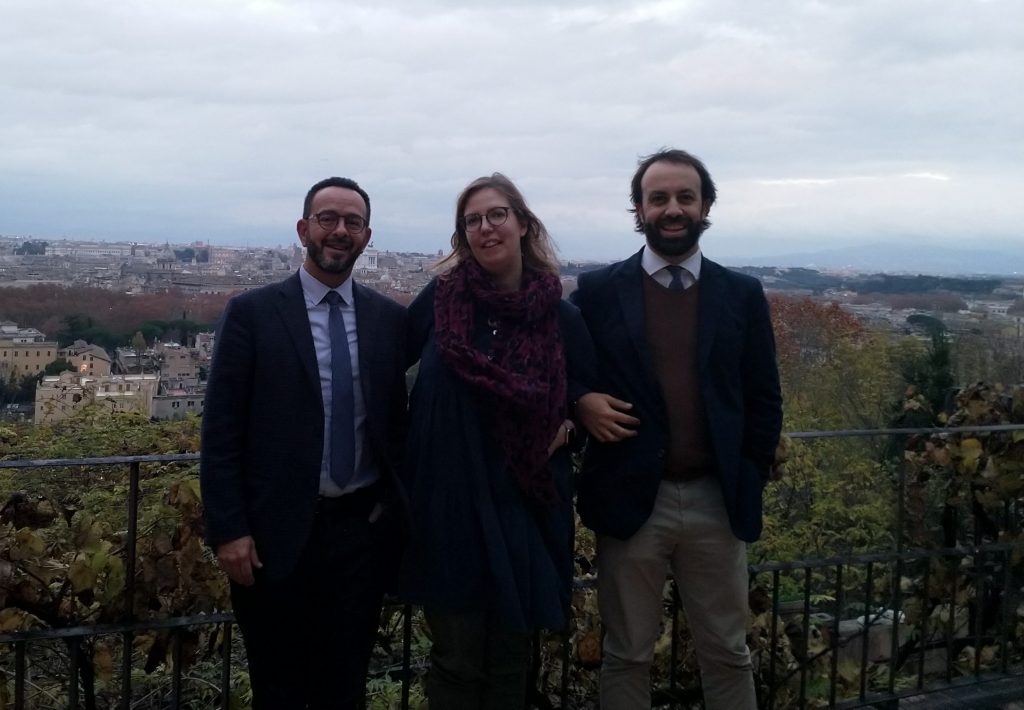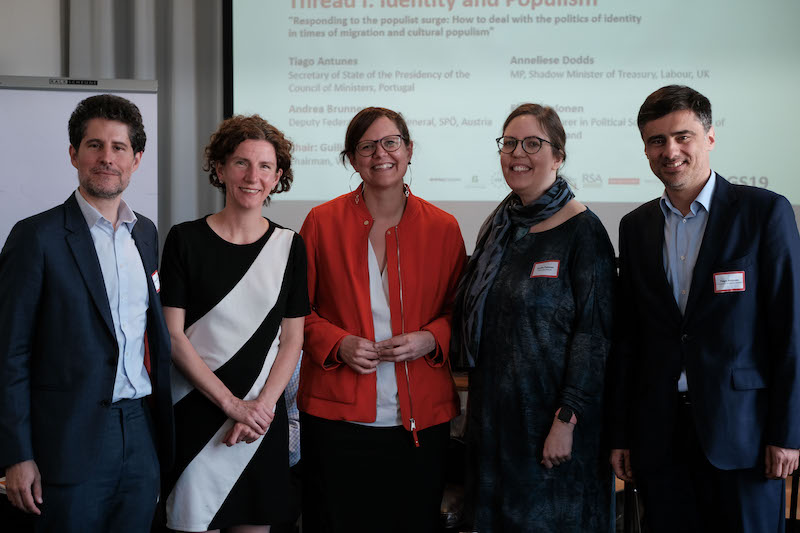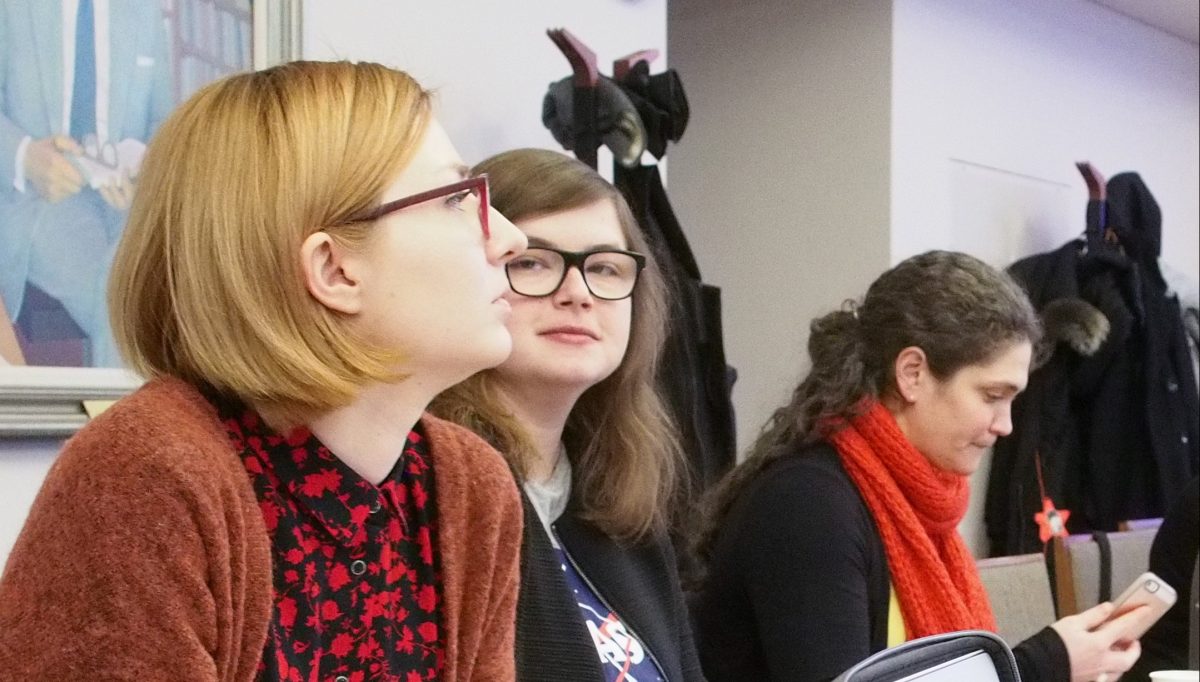All the activities from the University of Helsinki feed: see all categories for our visits, conferences and seminars and publications.
Here are some highlights from the first year 2019, and the beginning of 2020:
Summer Schools and the first HEPP conference: We organised in August already our own first Helsinki Emotions, Populism and Polarisation (HEPP) conference of 100+ people. Co-ordinated by Marina Vulovic, with Palonen and Salojärvi the conference was organised together with Mainstreaming Populism project of Herkman and the two HSS courses on Postfoundational and Rhetoric-Performative Analysis that Palonen and Vulovic, and Populism in Europe and Beyond that Salojärvi leads. Both summer school courses were well attended and provided a space for interaction for PhD and MA students. Palonen organised a small seminar precisely with the WhiKnow partners at the Villa Lante 2 December 2019.

Visits to other institutions for field-work and seminars: Ruta Kazlauskaite visited University of Warsaw, Poland; Laura Sibinescu Babes-Bolyai University (BBU) in Cluj, Romania; Emilia Palonen the Finnish archaeological and historical institute Villa Lante in Rome, Italy; Virpi Salojärvi visited University of Miami in the US where she gave two presentations with excited audience. In addition the PI visited shortly some partner organisations from the MTA in Hungary to TU Dresden and BBU. We also hosted several colleagues for the Summer School in 2019 and our H2020-bid workshops in 2020.
Invited talks: the PI was sought after in Europe and in Finland for talks, visiting TU Dresden in Germany, and in Sweden Södertörn University in Stockholm. The MIDEM project collaboration has been fruitful with Palonen’s lecture on Finnish populism, and comments at their Annual Conference on Migration of Europe.
Invited to speak to non-academic audiences Palonen presented her theory of populism and its resonance with the civil society and local democracy to the CSO umbrella organisation Civil Society Europe as a keynote speaker in their annual conference held in Slubice, Poland. She also was an invited speaker at the progressive think thank’s major event Progressive Governance Symposium.

Conferences: We attended several conferences of which Mediaflows 2019 on European Elections: Populism and Euroscepticism in Valencia was the central one for showcasing our research and enhancing our partnerships across Europe, this is where we had presentations by Kazlauskaite, Salojärvi and Sibinescu, as well as Palonen, who was introducing the WhiKnow project overall. Furthermore, we took part with a panel at the Finnish PSA conference (Sibinescu and Palonen), presented papers and were discussants in the ECPR conference (Palonen and Sibinescu), took part in the panel of ReNEW conference in Nordic Studies (Palonen), gave a paper at the The Fourth Annual Tartu Conference on Russian and East European Studies (Kazlauskaite). Academic capitalism was further discussed in EISA Sofia (Sundell and Palonen). We also gave papers on emotions and populism at the ECPR Joined Sessions and ISPP (Salmela), and on the context of right-wing populism in Poland (Kazlauskaite and Salmela).
Of the other three Laclaudian conferences of the year, Palonen presented WhiKnow in the University of Brighton Fascism? Populism? Democracy? Critical Theories in a Global Context, and took part in panels and gave papers at the DESIRE conference Discourse Theory: Ways Forward -colloquium in VU Brussels, Belgium (Palonen and Sundell). We also made a strong presence with papers in the International Ideology and Discourse Analysis Conference at the University of Essex (Palonen, Salojärvi and Sundell).
We also gave several public talks in events locally from the Finnish Parliament to, the Finlandia Hall’s Café Veranda, City of Helsinki Museum, to the University of Helsinki’s Think Corner. The Crazy World series at the Think Corner, was documented in several videos.
Ruta Kazlauskaite presented on Poland and Laura Sibinescu on Romania.
For 2020, we had a busy schedule planned (e.g. PSA, IPSA, Crossroads, several summer schools around Europe, as well as our own HSS courses) before the crisis related to Covid-19 emerged. These are postponed until 2021.
However, the year started, well, with the Night of Science event at Faculty of Social Sciences, where we were present. We managed to organise two workshops related to our H2020 application culminating in a public event on transforming media in the Think Corner, with several academics around Europe joining us. Palonen visited Södertörn University for a seminar discussing also WhiKnow project’s latest developments. The last week before the academic activities we had a panel (Palonen and Czigány) at the Finnish PSA conference 12-13 March, unfortunately the international participants and including the PSA keynote speaker Roberto de Rosa (Unicusano) could not join us.
We look forward to some events still in 2020, and prepare the Second HEPP conference in May 2021. We already experimented with Lifesize conferencing in the First HEPP conference.
Publications and data gathering: The major effort for 2019-2020 has been data gathering and management. This data is discussed on another page (coming up shortly).
Publications include: article in Visual Communications on Faceless government: civic action in media photographs during the Venezuelan anti-governmental protests of 2017 (Salojärvi); methods articles (Palonen and Sundell); some academic research articles for large audiences both in English and in Finnish (Palonen), and Finland article for a yearbook. Some book chapters and an article dealing with the particular approach on populism are coming out in 2020.
The media presence was active, with PI and the other researchers being regularly interviewed by the media.
